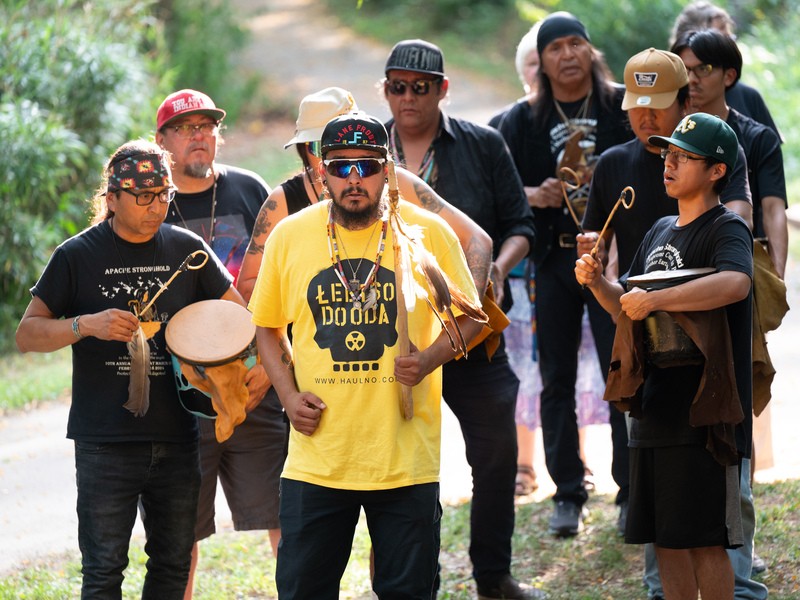Faith groups file friend of the court briefs in support of religious liberty

Leaders of Apache Stronghold open a gathering in Lexington, Kentucky, in August. (Photo by Rich Copley, Presbyterian News Service)
The head of the Presbyterian Church (U.S.A.), along with leaders of Mennonite Church USA, and Lipan Native American Church, filed a friend of the court brief in the US Supreme Court case of Apache Stronghold v. United States et al on October 15.
The presiding bishop of the Episcopal Church, the general synod of the United Church of Christ, the Evangelical Lutheran Church in America, and the United Methodist Church signed a similar but separate friend of the court brief in the same case.
The case in question is brought by Apache Stronghold, a Native American-led community organization based in San Carlos, Arizona, working to preserve from corporate destruction by mining Oak Flat, a site about an hour east of Phoenix in the Tonto National Forest known to the Apache as Chi’Chil Bildagoteel.





